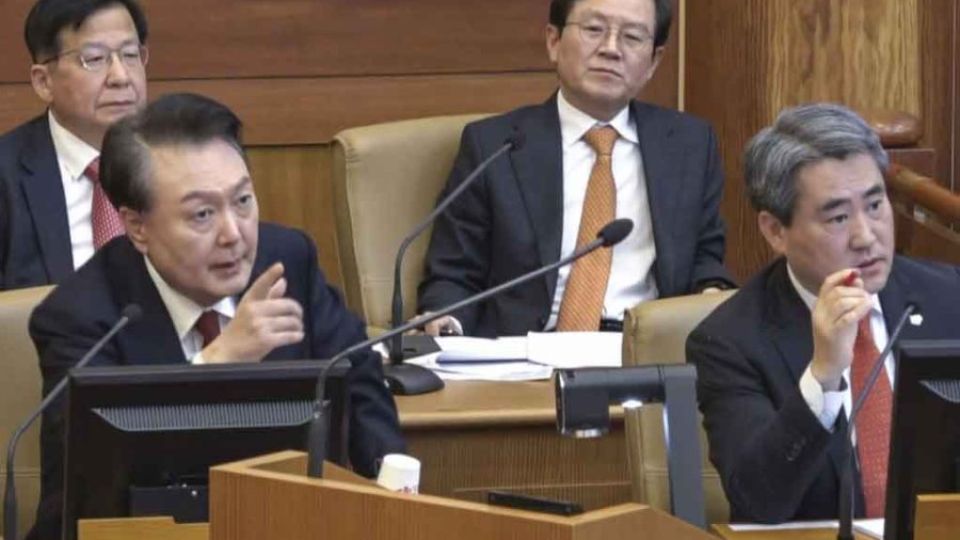February 11, 2025
SEOUL – President Yoon Suk Yeol’s impeachment trial enters its final stage this week, with just two formal hearings remaining, as those in legal circles generally expect the verdict to come in mid-March.
The Constitutional Court will hold the seventh and eighth hearings on Tuesday and Thursday, questioning eight witnesses. While further hearings may be scheduled, it is likely that the court will conclude proceedings by the end of this month and issue a decision on Yoon’s impeachment next month.
On Monday, the court’s press officer Cheon Jae-hyun told reporters that “no additional hearings are planned as of now.”
But some predict that at least two more sessions could be added, summoning impeached Prime Minister Han Duck-soo and Defense Counterintelligence Command officer Lee Kyung-min, who have yet to give testimony.
The country’s top court has so far held two preliminary hearings and six formal hearings since the National Assembly impeached Yoon over his Dec. 3 martial law declaration on Dec. 14 last year.
After his initial absence, Yoon has attended the last four hearings, dating to Jan. 21.
The court has examined the procedures for declaring martial law, details of Proclamation No. 1, military intervention in the National Election Commission, Yoon’s attempt to seize control of the National Assembly and his alleged efforts to detain politicians.
Witnesses so far have included former Defense Minister Kim Yong-hyun and three key commanders involved in the controversial martial law declaration.
On Tuesday, the court will question former Minister of the Interior and Safety Lee Sang-min, National Security Office chief Shin Won-sik, former NIS Deputy Director Baek Jong-wook and NEC Secretary-General Kim Yong-bin.
On Thursday, the court will hear from four more witnesses: former commissioner of Korean National Police Agency Cho Ji-ho, former Seoul Police Chief Kim Bong-sik, NIS Director Cho Tae-yong and Cho Sung-hyun, first security battalion commander of the Army’s Capital Defense Command.
Among the remaining witnesses, Baek’s testimony is likely to be crucial, as Yoon’s defense team is expected to emphasize allegations of election fraud during his questioning.
Whether such claims are true or relevant to the martial law declaration criteria, the Constitutional Court has already dismissed requests from Yoon’s team to examine voter numbers and audit NEC servers.
After completing witness examinations, the court is likely to set a separate date for Yoon’s final statement.
In previous impeachment trials, the court held two hearings following the conclusion of witness testimonies in the case of former President Roh Moo-hyun and one hearing for former President Park Geun-hye.
The court issued its verdict two weeks after final arguments in Roh’s case and 11 days later in Park’s case.
Based on this precedent, a decision on Yoon’s impeachment is expected by mid-March, approximately three months after the National Assembly passed the impeachment motion. This timeline is similar to Park’s case (91 days), but longer than Roh’s (63 days).
Meanwhile, Yoon’s legal team is reportedly trying to delay the proceedings, having already requested to reduce the frequency of hearings to once a week.
They may also ask to halt the trial based on Article 51 of the Constitutional Court Act, which allows the court to pause impeachment proceedings if a criminal trial involving the same allegations is ongoing.
The first preliminary hearing for Yoon’s criminal case on charges of leading an insurrection is scheduled for Feb. 20.
Meanwhile, the cyber investigation team of Gyeonggi Southern Provincial Police Agency said that they had arrested a man in his 30s on an intimidation charge.
He is accused of posting online the intention “to set fire at the Constitutional Court” on online community DC Inside’s American Politics Gallery on Jan. 19. He reportedly said that he wrote the comment “out of anger.”


